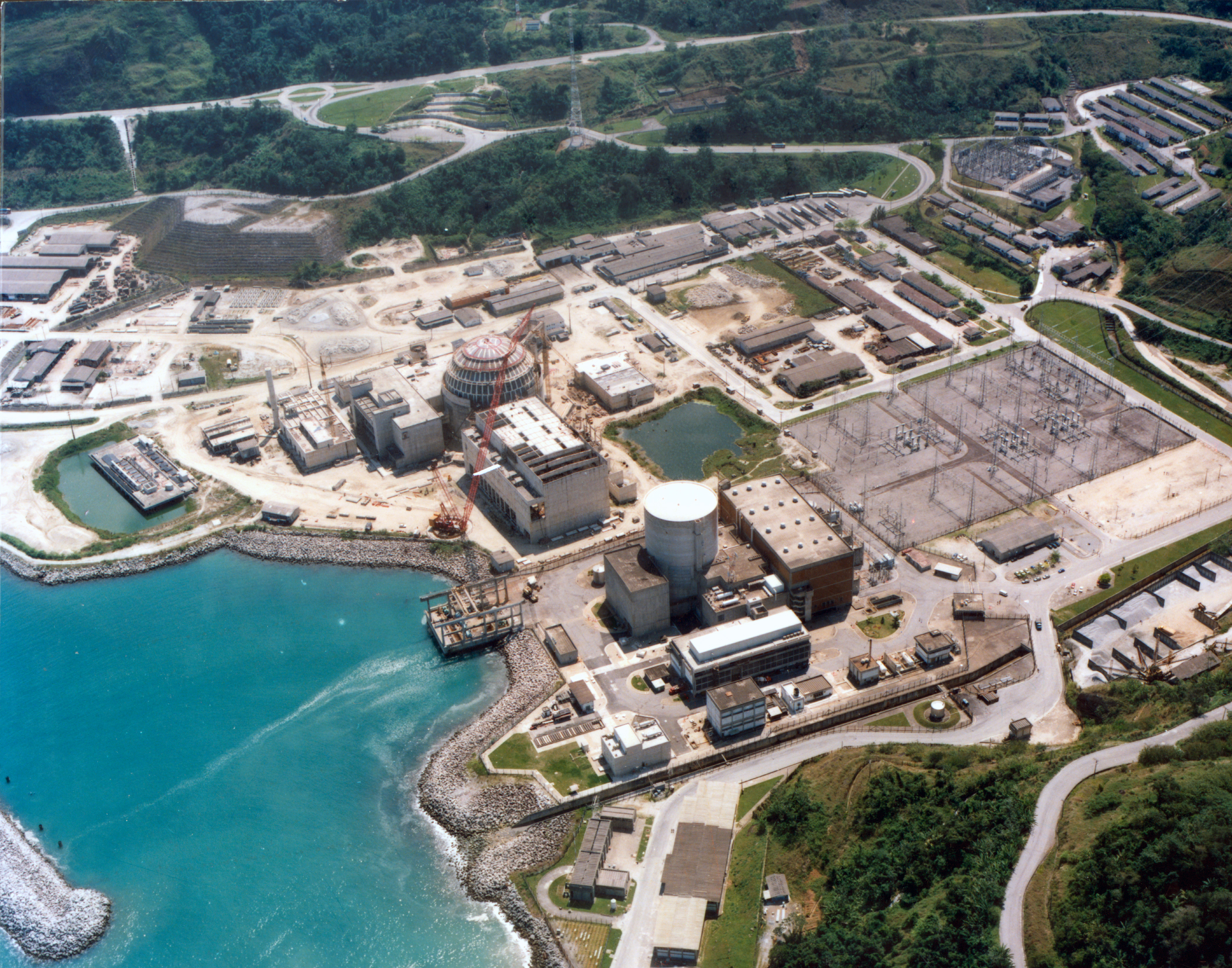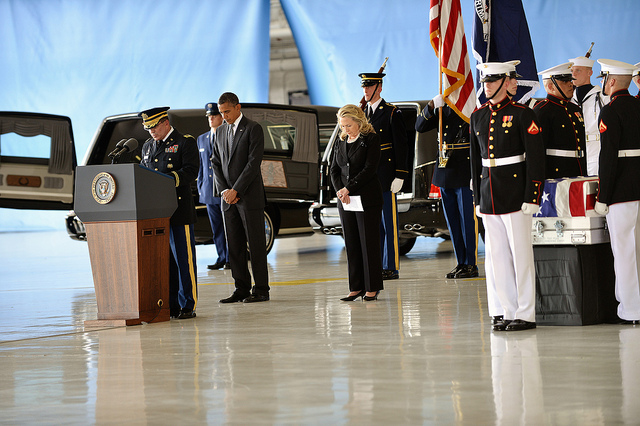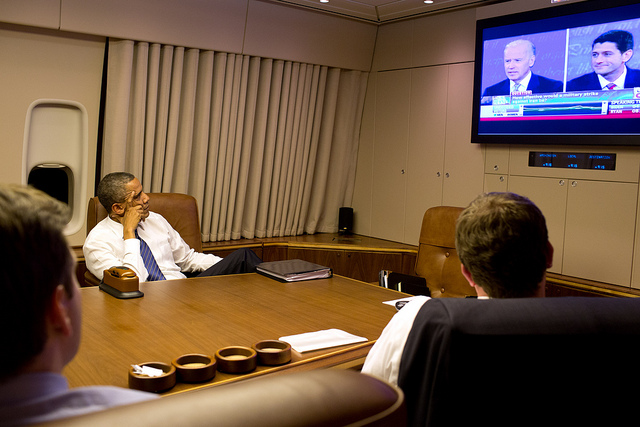
As part of its occasional ‘Would Someone Please Explain This to Me” series, Political Violence @ a Glance recently asked readers to suggest questions about the world of conflict and international relations. Reader Nawal Ali asks:
Why has Latin America been so free of nukes or at least a nuclear weapons program? Is it because technical requirements for nuclear weapons development are much higher then civilian nuclear ventures or is it something else at play?
The 1967 Treaty of Tlatelolco banned nuclear weapons in Latin America. But the treaty’s existence does not fully answer this question — if Latin American states really desired nuclear weapons they would develop them anyway and accept the consequences, refuse to fully abide by the treaty, or would not have signed it in the first place. Today’s Latin America includes several countries that likely possess the technological and financial resources to develop nuclear weapons, with effort — Argentina, Brazil, and Mexico all spring to mind. One of these countries, Brazil, has long sought a permanent seat on the UN Security Council, a body whose current permanent members all possess nuclear arms. Latin America is also no stranger to arms races, with a little-known early 20th century dreadnought race between Argentina, Brazil, and Chile being the most famous example. And as David R. Mares writes in his excellent book Violent Peace: Militarized Interstate Bargaining in Latin America, interstate conflict, or at least militarized interstate bargaining, is more common in the region than commonly known. Chile militarized its long border during the country’s period of dictatorship, Argentina nearly went to war with Chile over Beagle Channel islands in the late 1970s, and violent rhetoric between Chile and its neighbors persists.
So if several Latin American countries have the resources to develop nuclear weapons, and arguably at least some incentive to do so, why does the region remain nuclear weapons-free?
The simplest answer is that nuclear weapons have gone out of style. As John Mueller has extensively argued, despite decades of proliferation fears the number of nuclear-armed states has grown slowly. In an era where interstate war is comparatively rare, the value of a nuclear security guarantee has shrunk when nuclear weapons’ diplomatic and image costs have grown. As the threat of major war has receded both around the world and in the region — which is partially due to US hegemony in Latin America, as Joe Young noted — the practical security gains from nuclear weapons have declined. Given the time, effort, and resources required to acquire nuclear weapons, if states cannot expect enough security or prestige gains to justify their costs they will be more hesitant to invest in them. Tellingly, countries that have armed in the last few decades have tended to be isolated or facing extraordinarily dangerous security situations: Israel, North Korea, Pakistan, and South Africa are all a little of column A, and a little of column B. None of the Latin American states with the resources to develop nuclear arms are, or more arguably have been, in this situation.
Beyond security, nuclear weapons are no longer seen as a path to international status. If a Latin American country armed itself today with a nuclear weapon it would be more likely to receive global condemnation than great power prestige. Indeed, in the modern era aircraft carriers are arguably a more important military status symbol than nuclear weapons. For Latin American countries anxious to improve their international standing, prestige stems from economic growth and membership in international organizations like the BRICS bloc (see Oliver Stuenkel’s writing on Brazil and the BRICS), and conventional weapons, rather than nuclear status. (Though it is worth noting that in Latin America this argument is partially a circular one, as Brazil is one of the world’s most politically and economically prominent non-nuclear states.)
But it is important to remember that despite these explanations the lack of nuclear weapons in Latin America is not an accident; Argentina and Brazil both launched, and then abandoned, nuclear weapons programs. Mitchell Reiss examines this aborted nuclear arms race in detail as a case study in his 1995 book Bridled Ambitions: Why Countries Constrain Their Nuclear Capabilities. In the 1970s Argentina developed a secret enrichment facility and by the early 1980s could “theoretically” enrich weapons-grade uranium. At the same time each branch of the Brazilian military had a separate nuclear weapons program, the Air Force built an underground nuclear test chamber hidden in the Amazon (though Brazil was not actually capable of carrying out a nuclear test), and the country maintained that it had the right to set off a test nuclear explosion.
Both countries had incentives to develop nuclear weapons, and while their development programs ran into severe technical problems and were never close to success, it’s plausible that they could have eventually produced weapons with enough time and effort. So why did Argentina and Brazil shelve their nuclear weapons programs?
First, Reiss writes, both countries’ weapons programs moved slowly enough — partially due to serious setbacks caused by nuclear states’ refusal to export their sensitive technologies — that their governments had ample opportunity to shutter them. Secondly, both realized that a nuclear arms race was a mutual losing game. Brazil’s great size advantage meant that Argentina could never match a Brazilian nuclear arsenal in absolute terms over the long run, but also that Brazil would lose relative prestige if Argentina developed nuclear weapons. Third, the existing Treaty of Tlatelolco, which both countries had signed but not fully abided by, provided a convenient “out” and a more acceptable alternative to the Non-Proliferation Treaty, which both countries resented and had initially cooperated to oppose. Fourth, bilateral relations improved in the late 1970s and soon afterwards Argentina and Brazil’s transitions to democracy reduced their governments’ desire for the bomb. Argentina’s humiliating loss in the Falklands War increased its incentive to gain a nuclear deterrent, but also helped usher in a civilian government much less interested in nuclear weapons.
Finally, simple good diplomacy and the desire for international approval allowed Argentina and Brazil to mutually agree to abandon nuclear ambitions, and anyway while both were rivals for a leading position in South American neither saw war as any real possibility, which lowered the contest’s stakes. In a series of agreements in the early 1990s both agreed to shutter their nuclear weapons programs and fully abide by the Treaty of Tlatelolco, though Brazil remains interested in developing a nuclear-powered attack submarine. While some allege that Brazil could develop nuclear weapons on short notice or use work on nuclear submarine propulsion as cover for a weapons program, it is difficult to see any real rational for such a drastic step in the near future.








5 comments
I was told that someone nuked argentina but i dont believe it